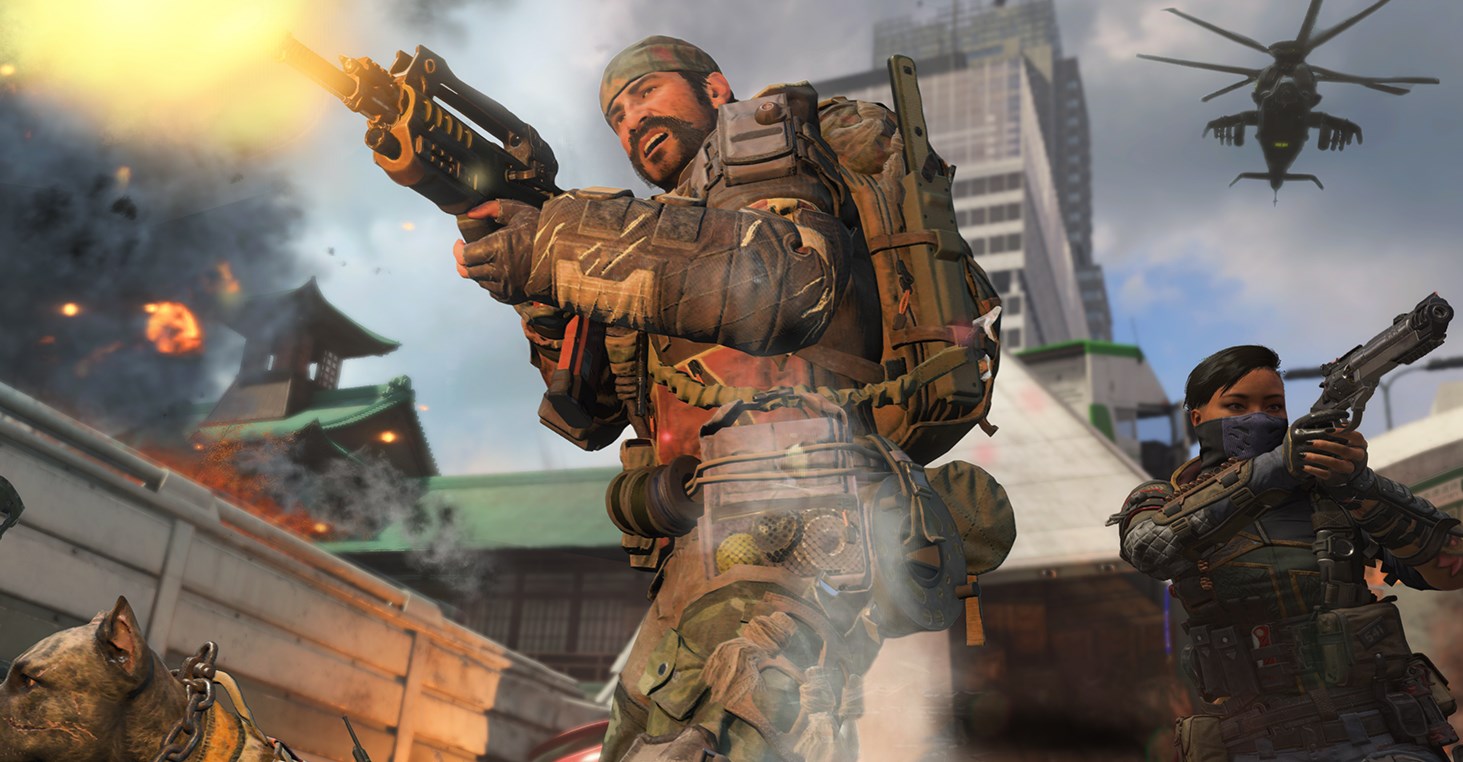Making Call of Duty a Battle.net exclusive was apparently a 'resounding failure'
So argues Microsoft's team of lawyers, but Battle.net's lack of growth during CoD's exclusivity might've been more of a Blizzard problem.

Activision Blizzard stopped releasing new Call of Duty games on Steam in 2018, opting to make Call of Duty: Black Ops 4 exclusive to Blizzard's Battle.net platform on PC. That store exclusivity strategy ended just last year with Modern Warfare 2, and according to Microsoft's lawyers, the whole thing was a "resounding failure." That might be a slight exaggeration, though.
In a court document filed today (related to the recent hearing over Microsoft's pending acquisition of Activision Blizzard), Microsoft's legal team affirms the notion that Call of Duty's Battle.net exclusivity ended because it wasn't performing like Activision Blizzard had hoped—but what success would've meant is stated in terms of Battle.net's success, not CoD's, which leads me to quibble with it a bit.
"Activision's attempt to take PC digital sales of Call of Duty exclusive to its Battle.net platform was a resounding failure," reads part of the document. "Before 2018, Activision sold digital versions of PC Call of Duty titles on Valve's successful Steam platform. In 2018, Activision decided to take the game off of Steam and make it exclusively available on Battle.net—largely in an effort to attract users to, and grow, Activision's own platform. Battle.net's monthly active users ('MAUs') remained relatively flat during the period when it had exclusive access to digital sales of Call of Duty on PC, from 2018 through 2022."
It surprised me that Battle.net's monthly active users didn't grow while CoD was exclusive. Most online services saw a bump in 2020 as the pandemic kept people home, and the first CoD: Warzone, which released in March 2020, was a huge success. At the end of 2020, Activision Blizzard reported "a record year for the Call of Duty franchise" with 100 million monthly active users, a chunk of whom had to be using Battle.net, because the company's PC revenue increased 20% that year. Clearly, Call of Duty's Battle.net exclusivity did add Battle.net users. So why didn't it grow?
Battle.net's alleged stagnancy during CoD's exclusivity period appears to be more about Blizzard than Call of Duty. The monthly active users for Blizzard games dropped from 35 million at the end of 2018 to 22 million at the end of 2021, a loss of 13 million—apparently enough for Battle.net's active usership to remain "relatively flat" despite Warzone's exploding popularity.
Things are different now: According to the company's quarterly earnings reports, Blizzard games were back up to 45 million monthly active users during the last quarter of 2023. That figure dropped back down to 27 million in the first quarter of this year—it is highly variable, apparently—but that's before the release of Diablo 4, which surely shot it back up. Not all of Blizzard's players use Battle.net (there are mobile Diablo Immortal players and Overwatch console players, for instance), but if Call of Duty were still a Battle.net exclusive with Diablo 4 out, I doubt Microsoft would be able to argue that the service didn't grow at all during its exclusivity period.
Pretty slick move by Activision, then, releasing Modern Warfare 2 and Warzone 2 on Steam just in time to point out that Battle.net didn't grow while CoD's PC versions were exclusive to it. If you haven't been following, Microsoft and Activision are trying to convince the world's regulators and judges that Microsoft isn't going to make Call of Duty an Xbox exclusive after it buys Activision Blizzard, and pointing out that Activision's previous efforts to restrict Call of Duty's availability were boneheaded is part of their strategy. They've also said it was a mistake not to put Call of Duty on the Nintendo Switch.
Keep up to date with the most important stories and the best deals, as picked by the PC Gamer team.
That was definitely a mistake, though, and it's not hard to believe that Call of Duty's Battle.net exclusivity really did hinder it, especially considering how well it's doing on Steam now. Over half-a-year after it released, Modern Warfare 2 is still one of Steam's top 10 bestsellers by revenue, as well as one of the top 10 most-played games on Steam by daily users. The series is clearly doing well back in Gabe's embrace, and Activision isn't the only company to come crawlin' back to Steam recently.
Regarding Microsoft's attempt to buy Activision Blizzard, it looks like it might go through after all. A judge recently denied the FTC's request for an injunction that would've temporarily blocked the deal, and as a result, the UK regulator that previously blocked it became willing to chat about compromise.

Tyler grew up in Silicon Valley during the '80s and '90s, playing games like Zork and Arkanoid on early PCs. He was later captivated by Myst, SimCity, Civilization, Command & Conquer, all the shooters they call "boomer shooters" now, and PS1 classic Bushido Blade (that's right: he had Bleem!). Tyler joined PC Gamer in 2011, and today he's focused on the site's news coverage. His hobbies include amateur boxing and adding to his 1,200-plus hours in Rocket League.

